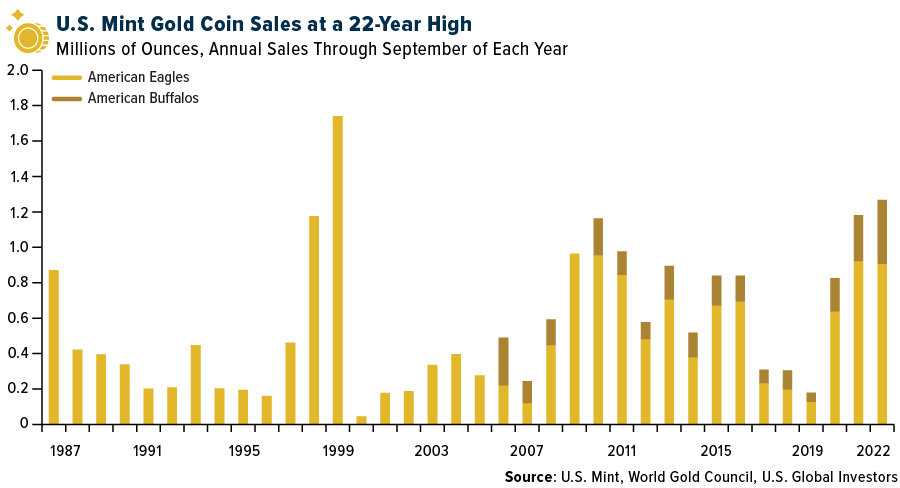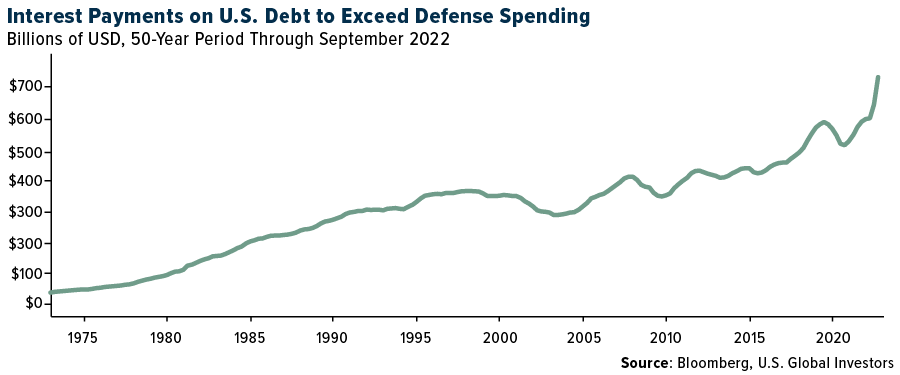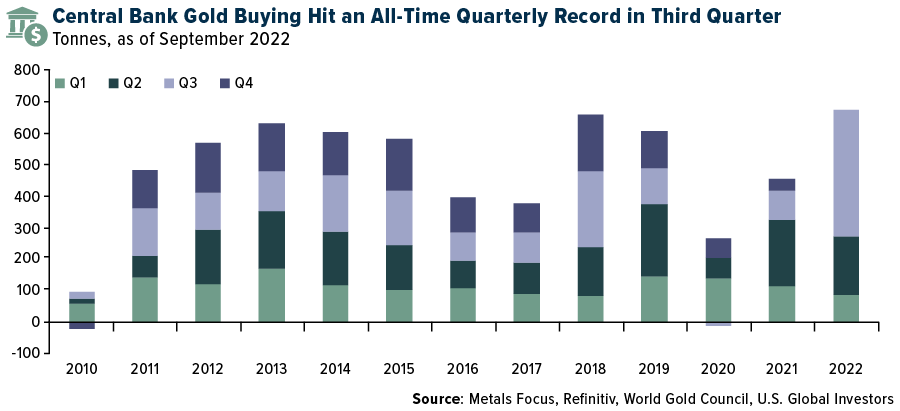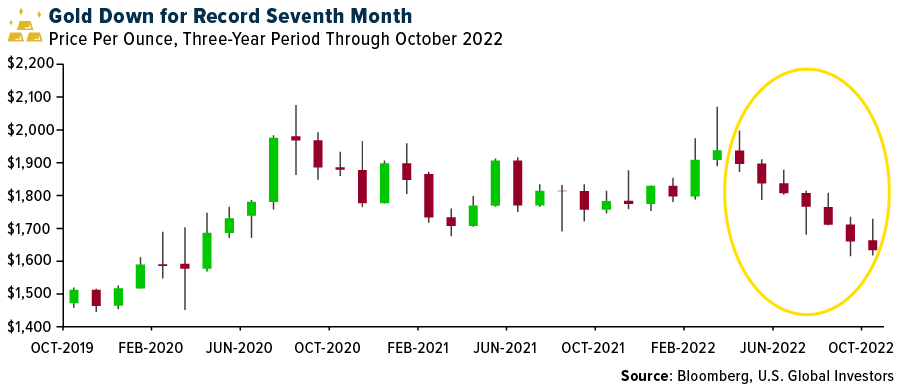As I see it, decentralized assets have never looked more attractive than they do now. That includes gold, silver and Bitcoin, and you could also make a case for collectibles like art.
By “decentralized,” I mean that a central authority does not issue these assets. They are no one’s liability. No central banker makes the decision to mint more gold or silver. No finance minister decrees that Bitcoin production be slowed or accelerated.
Investors have been diversifying with gold and silver for decades to limit their exposure to poorly executed monetary and fiscal policies. As I shared with you last month, investors bought more American Eagle and American Buffalo gold coins between January and September of this year than in any other such period going back to 1999.
I believe this is largely a reflection of Americans’ souring opinion of the state of the economy and the imbalance they see in monetary and fiscal policies.

For the same reasons, more and more investors are also diversifying with Bitcoin, an asset whose payment system is based on “cryptographic proof instead of trust.” That’s from Satoshi Nakamoto’s Bitcoin whitepaper, released 14 years ago.
Satoshi’s point about trust is key to the idea of decentralization. As users of government-issued fiat currency, we have little choice but to trust policymakers’ economic and financial decisions, which may significantly impact the value of our money.
U.S. Spends More On Interest Than On Its Military
Take a look at where monetary and fiscal mismanagement has gotten us. Total U.S. debt now stands at an unfathomable $31 trillion, or around a quarter of a million dollars per U.S. taxpayer. Debt accounts for over 121% of the entire U.S. economy. That means that for every dollar the U.S. has, it owes a buck and a quarter (almost).
Meanwhile, the Federal Reserve has been lifting interest rates at a pace we haven’t seen in 40 years, which makes servicing debt much more expensive. The amount of money the U.S. government pays on interest alone now exceeds its defense spending.
In the third quarter of 2022, the government paid over $736 billion just on interest. That’s more than its 2020 national defense budget of $714 billion.

Central Banks Load Up On Gold
With gold, silver and Bitcoin, there’s no need for investors to put their trust in a third party or intermediary, especially one that may not have their best interests in mind.
What I find interesting is that central banks themselves—the ultimate central authorities—recognize the power in diversifying with decentralized assets. According to the World Gold Council (WGC), global central banks collectively added a record amount of gold during the third quarter. Purchases jumped to nearly 400 metric tonnes, more than double the amount compared to the previous quarter and a new quarterly record. With these purchases, the year-to-date total for 2022 now stands at 673 tonnes, higher than any other year since 1967, the WGC says.

Gold Down For Record Seventh Month—A Buying Opportunity?
Gold’s critics and haters will point out that the price of the precious metal has been down for seven straight months, a new all-time record, as of October.
They are correct. Due to rising interest rates and an historically strong U.S. dollar, gold has experienced a monthly losing streak unmatched since—are you ready for this?—1869.

This sounds awful, but let’s put it in context. Through the end of October, gold has fallen 11% in 2022. The S&P 500, by comparison, has lost 18%.
What about other asset classes? Well, tech stocks (Nasdaq 100) have lost even more at around -30%. Emerging markets have done just as badly in 2022.
Treasury bonds are down 14%, corporate bonds are down 20%. Bitcoin is off 55% for the year.
So yes, the price of gold has declined for a record seven months, but it’s still beating close to everything else. That has to count for something.
For these reasons, I believe gold is priced very attractively, trading under $1,700 an ounce. The Fed will need to pivot at some point, and when it does, I think gold (and Bitcoin) could rally.
U.S. Global Investors Receives STAR Award For Overall Investor Education
I’m very pleased to share with you that U.S. Global Investors received two STAR Awards at this year’s Investment Management Education Alliance (IMEA) ceremony, held last week in New York City.
Competing in the small firm category, we took home the Investor Digital Experience award in recognition of our website redesign. We were also awarded top prize in Overall Investor Education for our content on Bitcoin and cryptocurrencies. I should point out that STAR Award entries are evaluated by a group of anonymous, impartial industry judges.
The rich educational content we produce at U.S. Global Investors is truly a group effort, and I commend the work of everyone in our talented marketing and investments teams. Many thanks also go to the IMEA.
If you like the work we produce and wish to support us, please consider subscribing to our newsletters today. And if you’ve already subscribed, thank you!
All opinions expressed and data provided are subject to change without notice. Some of these opinions may not be appropriate to every investor. By clicking the link(s) above, you will be directed to a third-party website(s). U.S. Global Investors does not endorse all information supplied by this/these website(s) and is not responsible for its/their content.
Diversification does not protect an investor from market risks and does not assure a profit.
